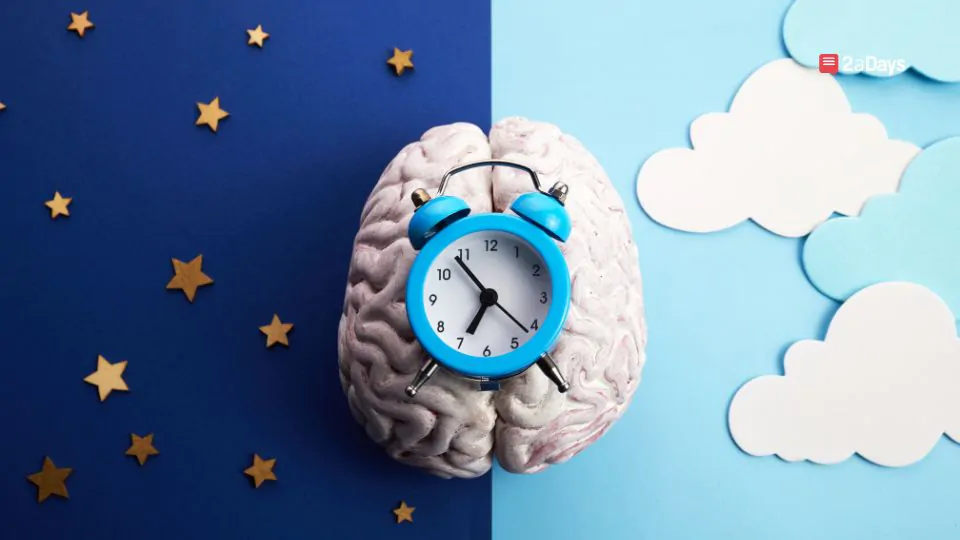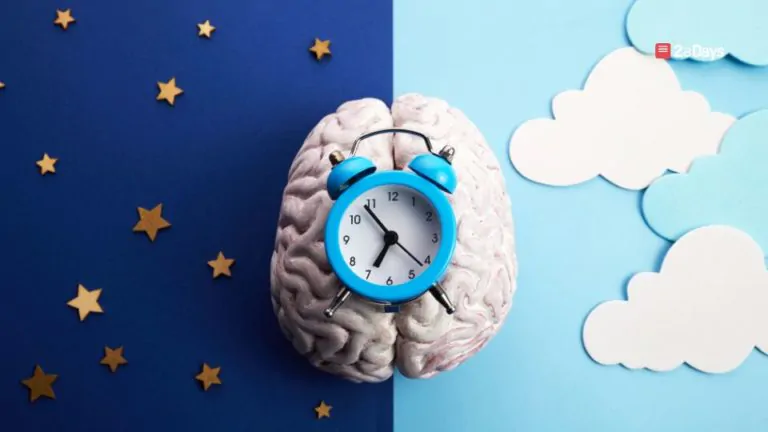Sleep is important for athletes and it shouldn't be hard to get enough. But life often gets in the way of a good night's sleep and the stress and pressure college athletes deal with certainly doesn't help matters either. In this article, I'll provide a few helpful tips that may help you enhance sleep quality, but first I need to overview the circadian rhythm and share a sleep analogy that roughly explains how sleep deficits work.
Find Your Rhythm
The circadian rhythm is a fancy term describing the cycle that involves times of higher alertness and sleep tendencies that naturally happen throughout the day and night. For most people, this is a roughly 24 hour, 2-peak biological cycle. Most people are alert in mid-morning, lag after lunch, then get more alert again in the later afternoon.
Related: 3 Ways a Lack of Sleep Negatively Impacts Athletic Performance
Because the circadian rhythm is predictable, it's challenging when you need to adjust to time changes like daylight savings time, or travel between time zones. It usually takes the better part of a week to adapt to any major changes, so this is why sleep experts recommend seeking consistency with sleep habits. Major changes (like the enjoying an unusually late night out) could have consequences for sleep for several days afterward, as the athlete's body struggles to adjust to or overcome what it has been exposed to. This is also the case when you play a late-night game (think bright lights and major neurological stimulation by sights, sounds, etc.). Any major deviation could require you to adjust something else in your schedule to catch up on sleep. Importantly, the circadian rhythm is sensitive to light, which may present challenges to manage, but also some opportunity for control.
Bucket List
This brings me to the next concept: the sleep bucket. In this analogy, you have a bucket with holes in it that represents your sleep needs, and you can only scoop so much sleep into it per night. Only by getting a sufficient amount and quality of sleep consistently can you fill your bucket high enough to operate at full capacity. Remember, as I shared in a previous article you have a customized individual range of sleep needs that is shaped by a lot of factors, so everyone's sleep bucket looks different.
Athletes need to work diligently to keep their sleep bucket at high levels, because you have a demanding schedule accompanied by big physiological and psychological demands. Missing out on a lot of sleep can take several days to recover from, and the larger your sleep deficit, the worse your problem gets (focus issues, irritability, frequent yawning, etc.). Sequential nights of poor sleep may build up and affect your nervous system–remember that's a big deal for athletes who need to respond to their environment and make decisions quickly. And the nervous system is thought to drive training adaptations, so we need to optimize!
Related: 5 Ways College Athletes Can Improve Their Sleep Schedule For Peak Performance
Don't Hit Snooze on These Tips
Sleep experts typically recommend adopting pre-sleep routines that help you get to bed efficiently. You may find that some strategies can make a big difference. I've provided a brief list of common recommendations and suggestions here:
- Limit screen use close to bedtime. For example, ignore your phone after 8pm and don't watch TV near bedtime. By looking at screens, you're staring at a light, which could produce an undesirable neurological arousal response before bed. Your circadian rhythm is sensitive to light.
- Adjust your hydration routine by drinking more water after practice and taper down water intake later in the evening. Expect that hydration is challenging for athletes in hot climates.
- Avoid caffeine after lunch. Caffeine is a central nervous system stimulant, and is likely to affect your sleep if you ingest any later in the day.
- Ensure your bedroom is dark, cool, and quiet, and your clock display is dim—consider a night vision-friendly color like red or green or a projection clock.
- Stretch for a few minutes before bed. This fosters relaxation.
- Read a book (the paper kind) before lights out. Even a few pages a night could help you advance your personal development. If you're tired, some light reading could help you decompress and tip you toward sleep.
- Get some sun in the morning. Exposure to light may help tune your circadian rhythm.
- Manage your anxiety. If you frequently find yourself lying in bed unable to sleep because your mind isn't letting you rest, talk to your coach or someone in your support network about it. They may steer you toward a sport psychologist, who might help you learn specific relaxation techniques, visualization strategies, or possibly recommend counseling resources if necessary, to help you deal with things you're struggling with. Don't be afraid to explore new ideas and processes, because whatever works for you to control your situation better may end up being a long-term valued component of your sleep process, just like stretching before an athletic event.
Final Thoughts
Often an athlete's commitments are difficult to balance in the best of times. Sacrificing sleep can have substantial effects upon your performance in practice and games, and affect your health. The concepts and tools I have discussed in this article may help you understand how your body handles sleep deficits and how tough it can be to recover “normal” status of your body and mind. If you have people in your support network that are well-informed (e.g., a sport scientist), ask for help managing your schedule or designing and refining your pre-sleep routine so you can keep your sleep bucket consistently high.
Have an idea for a story or a question you need answered? Want to set up an interview with us? Email us at [email protected]
* Originally published on October 25, 2022, by Ben Gleason







